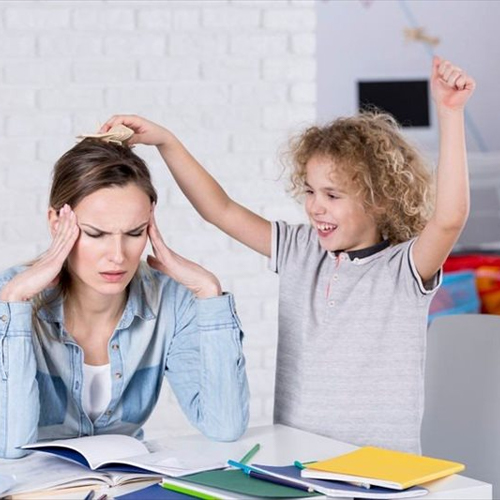ADHD (Attention Deficit Hyperactivity Disorder)
ADHD (Attention Deficit Hyperactivity Disorder)

ADHD (Attention Deficit Hyperactivity Disorder)
ADHD is one of the most common neurodevelopmental disorders of childhood. It is usually first diagnosed in childhood and often lasts into adulthood. Children with ADHD may have trouble paying attention, controlling impulsive behaviors (may act without thinking about what the result will be), or be overly active.
Signs and Symptoms
It is normal for children to have trouble focusing and behaving at one time or another. However, children with ADHD do not just grow out of these behaviors. The symptoms continue, can be severe, and can cause difficulty at school, at home, or with friends.
A child with ADHD might:
• daydream a lot
• forget or lose things a lot
• squirm or fidget
• talk too much
• make careless mistakes or take unnecessary risks
• have a hard time resisting temptation
• have trouble taking turns
• have difficulty getting along with others
Causes of ADHD
Scientists are studying cause(s) and risk factors in an effort to find better ways to manage and reduce the chances of a person having ADHD. The cause(s) and risk factors for ADHD are unknown, but current research shows that genetics plays an important role. Recent studies link genetic factors with ADHD.1
In addition to genetics, scientists are studying other possible causes and risk factors including:
• Brain injury
• Exposure to environmental risks (e.g., lead) during pregnancy or at a young age
• Alcohol and tobacco use during pregnancy
• Premature delivery
• Low birth weight
Research does not support the popularly held views that ADHD is caused by eating too much sugar, watching too much television, parenting, or social and environmental factors such as poverty or family chaos. Of course, many things, including these, might make symptoms worse, especially in certain people. But the evidence is not strong enough to conclude that they are the main causes of ADHD.
Treatments
In most cases, ADHD is best treated with a combination of behavior therapy and medication. For preschool-aged children (4-5 years of age) with ADHD, behavior therapy, particularly training for parents, is recommended as the first line of treatment before medication is tried. What works best can depend on the child and family. Good treatment plans will include close monitoring, follow-ups, and making changes, if needed, along the way.
